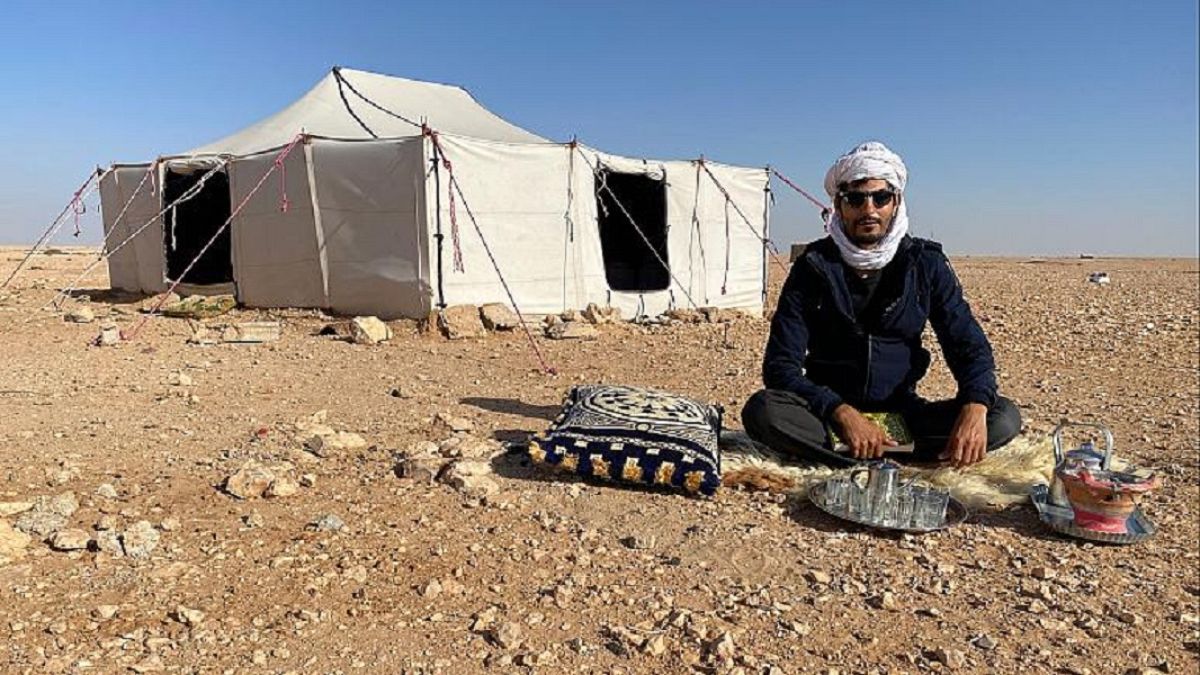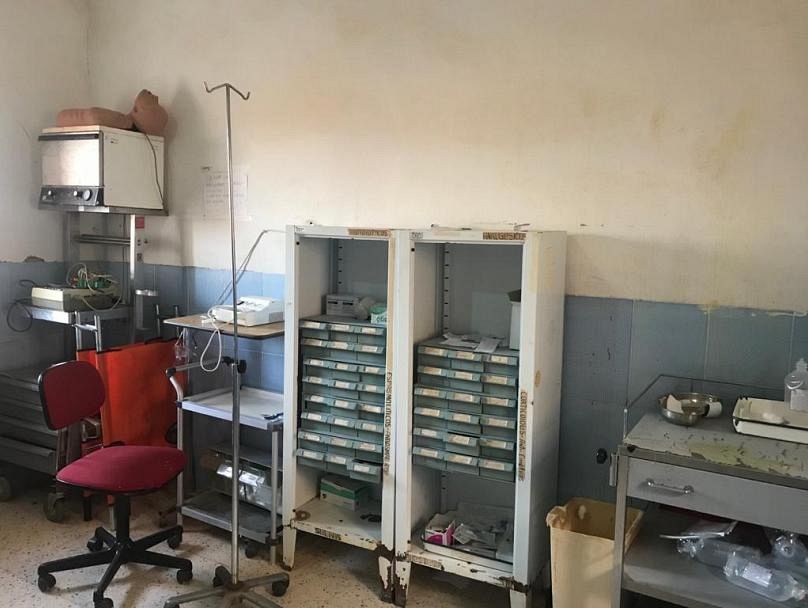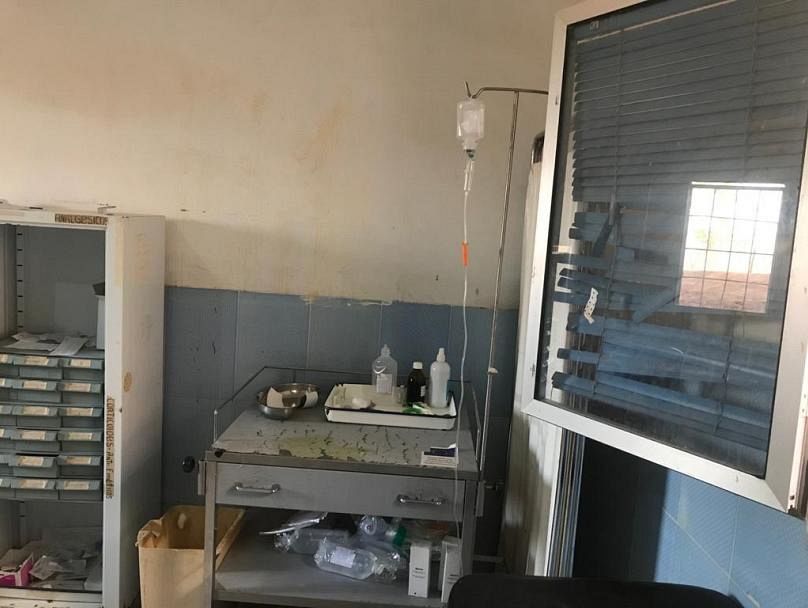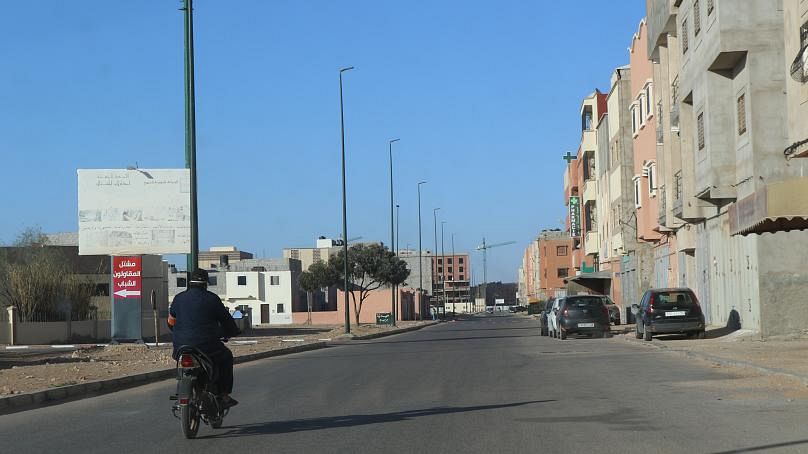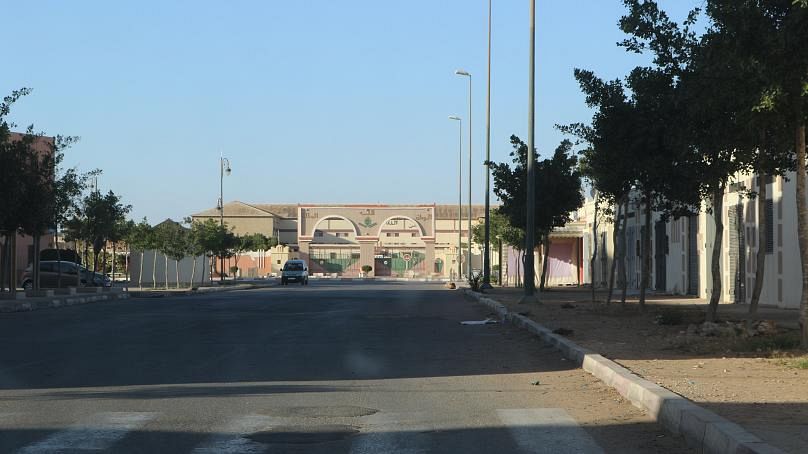Sahrawi refugees, who have been living in the middle of the Algerian desert for 45 years, are facing a new kind isolation amid this global pandemic.
Faced with the spread of the novel coronavirus, citizens from all over the world, even in the most remote places, are trying to protect themselves.
Just like the rest of the world, the Sahrawi refugee camps, located a few kilometers from Tindouf, southern Algeria, are battling against COVID-19.
Sahrawi refugees, who have been living in the middle of the Algerian desert for 45 years, are facing a new kind isolation amid this global pandemic. Because they lack medical staff and health care material, any coronavirus case reaching their communities could cause a catastrophe.
The borders with Algeria and Mauritania have been closed since 19 March, by order of the Polisario Front (a liberation movement at the head of the Sahrawi Arab Democratic Republic). Movements between settlements, called wilayas, have been limited in and around the camps.
The 16th edition of the Sahara International Film Festival, which aims to give visibility to the conflict through cinema, has been postponed. Several public events, including the 'Holidays in Peace' program, thanks to which hundreds of children spend their summer in Spain, have been cancelled.
While millions of people around the world have adopted the motto #StayAtHome, the Sahrawis apply their own: #StayInYourTent.
Some rituals, like tea-making, are maintained but held with extreme precautions: hands and glasses are washed more often, even though water is a scarce commodity in the Saharan desert.
The Sahrawis are aware that following distancing measures is essential to prevent the appearance and multiplication of positive coronavirus cases, in a place with such rudimentary infrastructure.
Abdala Banani Saaid, a Saharawi doctor, told Euronews that health personnel have very few protective equipment: just 600 pairs of gloves and 2,000 masks for a population of between 180,000 and 200,000 people.
“All the doctors who work abroad are helping, but right now no health center is really ready. Even the national hospital does not have respiratory equipment”, Abdala said.
There have been no reports of coronavirus cases in the Sahrawi refugee camps so far.
Two suspects detected have tested negative, which was a relief for the population.
Abdala fears cases could still declare themselves.
"Let's hope we don't get any case, because we really don't have anything here," he said.
Confined for more than four decades
Having lived in confinement for 45 years, the Saharawi refugees know very well what isolation from the outside world feels like.
They were exiled from Western Sahara, a former Spanish colony, after Moroccan occupied the territory. Many of them were forced to flee to the Algerian desert, where they built one of the largest and oldest refugee camps in the world.
Their daily life is made of food and water shortages as well as high temperatures. Faced with a health and economic crisis caused by the coronavirus pandemic, managing scarce resources would be even more complicated.
The price of the few products that can be purchased in the camps has already increased, affecting the most vulnerable families. Added to this situation is the fear of seeing further reduced humanitarian aid, which has already been cut in recent years.
The Sahrawi people say they fear that the international organizations to which they have long been subjected and whose management they often criticise, may abandon them due to the pandemic.
Despite everything, they claim draw strength by taking refuge in their religion.
"We are aware that our means are humble," Salima, a young Saharawi, told Euronews. "Our ability to cope with this virus is limited, but our hope is in God… We are a people of fighters, who have come out of more difficult things, so we will surely know how to get out of this with the same force."
Saharawi families once again separated
The so-called 'Wall of Shame' is a barrier built by the Moroccan Army that separates 'occupied' Western Sahara from 'liberated territories'.
On the other side of the wall, thousands of Sahrawis are adapting, like the rest of Moroccan citizens, to the prevention measures decreed by the Kingdom of Morocco.
On the night of 20 March, Rabat enforced a 'state of sanitary emergency' and restricted the movement of people. In Dakhla, a coastal city in the so-called 'occupied territories', Moroccan settlers panicked at the threat of COVID-19. Five days later, despite the ban, more than 1,200 Moroccans left the city.
As of 9 April, Morocco has registered 1,346 coronavirus cases and 96 deaths have been registered.
The Sahrawi side, however, has been willing to accept confinement in the cities of occupied Sahara, despite the fact that many of them have their family and livestock in the desert due to their Bedouin tradition.
Police controls in the area further complicate the transit of the Sahrawis.
"Many Sahrawi citizens who were abroad were prevented from joining their families in the 'occupied territories'," Sidi Ahmed Lyadasi, president of the NGO Adala UK, explained to Euronews.
"The Moroccan authorities have not provided any means of transport or exceptionally opened the air border, as most countries have done," he said.
As Mohamed Mayara, coordinator of the independent information portal Équipe Média, explained to Euronews, "there is complete distrust of the Moroccan regime" in the camps.
The Sahrawis living in the area have been under Moroccan rule since 1975. They routinely denounce the discrimination they suffer in the form of running water cuts, telephone surveillance, and even persecution, illegal detentions and torture.
The conflict in Western Sahara is one of the open wounds of African colonisation. When Spain withdrew from this territory in 1975, Morocco and Mauritania divided the region, and Mauritania left the territory four years later.
Then began the war between Morocco and the Polisario Front, and the flow of Sahrawi refugees started pouring into camps in Tindouf, Algeria.
In a health crisis of this caliber, "the differences between Moroccans and Sahrawis could widen," Mohamed Mayara said, citing the case of a young Saharawi, Hammadi El Kaihel, employed in a Moroccan business in the city of Esmara, who has reported an episode of racial discrimination.
"When the company published the list of beneficiaries of the coronavirus aid, their name was not included," Mayara explained.
According to the coordinator of Équipe Média, the so-called 'separatists' (Sahrawi pro-independence groups) and human rights activists “cannot access health services either, since Morocco considers that they have no right as long as they continue to criticise the regime,” he said.
Morocco's health system is ranked 89 in a list of 93 countries, according to the worldwide Numbeo database.
Should the situation in Western Sahara worsen due to the global crisis of the new coronavirus, there are real concerns that the deep gap between Saharawis and Moroccans would be further accentuated.
Meanwhile, the Sahrawi people, both in the refugee camps and in the "occupied territories", are fighting with all their resources against the spread of the virus. Their defeat would bring a new catastrophe on this already severely struggling population.
